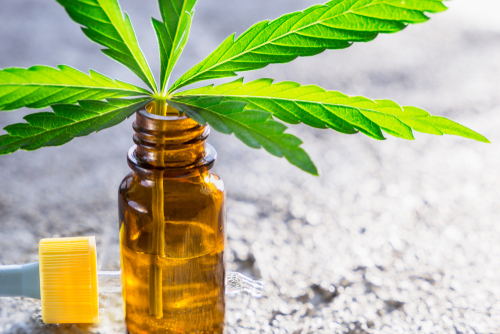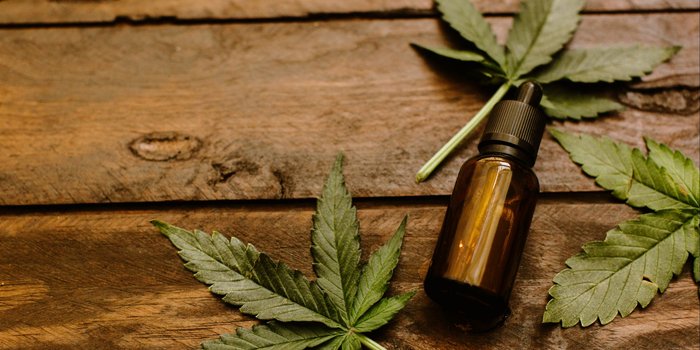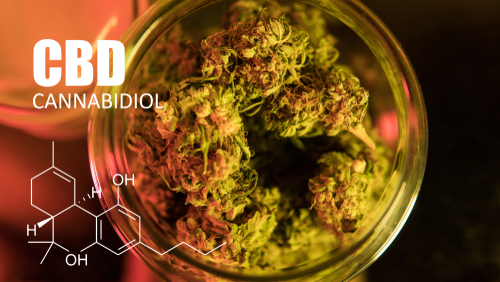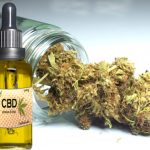For legal purposes, the majority of CBD oil products on the market today are being made from industrial hemp plants. There is a fairly significant difference (which we’ll talk about here shortly) between these plants and actual marijuana, with the latter actual being legal in all 50 U.S. states and the former (that is, marijuana) of course being illegal on a federal level.
While industrial hemp has natural amounts of CBD present in its stems and stalks, it’s not actually super easy to extract it in high enough amounts that are suitable for medicinal and therapeutic relief — especially without using harsh chemical solvents like a lot of companies are currently doing.
In this article we talk about the scary way that some of these brands are extracting CBD from hemp, what this means for you as a consumer, and how you can avoid choosing low-quality CBD oil products that may contain toxic chemical residues and/or other unnatural ingredients.
Why is CBD Oil Made from Hemp?
If you’ve done any online shopping for CBD oils, you’re aware that most companies claim they can “legally ship to all 50 U.S. states.” This is true, as long as their products are extracted and sourced from industrial hemp plants instead of actual marijuana plants.
The reason that industrial hemp plants are legal and marijuana is not, is because hemp contains very low levels of the chemical compound (THC) that makes you high. In fact, any cannabis plant (both hemp and marijuana are classified as “cannabis,”) that contains less than 0.3% THC by weight is considered hemp, and is thus legal in the U.S.
Here’s the thing about CBD oils: since CBD is naturally present in both the hemp and marijuana “versions” of cannabis, CBD oil can be made from either plant. However, since marijuana is illegal (at least federally), it makes sense that the majority of manufacturers are choosing to make their products from industrial hemp instead. This of course allows them to market, sell, and ship their oils (and other CBD products) legally all across the country, and even to some other countries outside the U.S.
But here’s the “Catch 22,” if you will: while CBD is present in the stalks and stems of hemp (these are the parts that are legal to use), it is not present in as high a quantity as it is in marijuana. Thus, in order to make a quality and effective CBD oil from industrial hemp, the manufacturer has to process very large quantities at a time in order to extract enough of the active compound. If this extraction process isn’t done correctly and responsibly, you could end up with a pretty scary (not to mention therapeutically ineffective) product.
Studies Show That Most Cannabis Oils are Inaccurately Labeled
Truth be told, one of the major things to be concerned about in regard to the “stuff” that’s found in your CBD oil is the presence of THC.
In case you are unaware, THC is the active cannabis compound that accounts for the traditional and mind-altering “euphoric” feeling associated with weed – when people smoke marijuana, the “high” that they get is directly a result of THC compounds binding with receptors in your brain. CBD, on the other hand, doesn’t work this way. Instead of binding to receptors in your brain and making you feel high, it interacts both directly and indirectly with receptors throughout the body to provide relief from pain, stress, anxiety, and much more.
Of course, the fact that CBD oil doesn’t get you high is one of its major marketing points; while countless millions of people across the United States and the world would love to find an alternative to their expensive prescription drugs, the majority of them don’t want to have to get high while doing so, and they certainly don’t want to turn into a “pothead” that has to light up a joint every time they need relief from everyday pain and stresses.
Naturally, this is why most all CBD oil manufacturers advertise their products as 100% THC-free. But how true is this, really?
In November of 2017, a research study out of the University of Pennsylvania found that nearly 70% of online-purchased CBD products had inaccurate labeling in regard to both the content of CBD, and the “lack of” THC content. In other words, the study found that many of the CBD oils purchased online contained small amounts of THC, even though they were labeled as being 100% THC-free.
This is scary on two different levels. On the one hand, the presence of THC could potentially produce psychoactive experiences, especially in children that have a substantially lower body mass than adults. While the trace THC amounts found in the test CBD products were not quite enough to provide a “mind-altering” effect in an average adult, it could potentially be enough to have an effect on children, which is particularly alarming given that CBD oil for child epilepsy is one of the compound’s most well-known uses. As lead author of the study Dr. Marcel Bonn-Miller says, “Parents could be giving their kids THC without [even] knowing it…”
The other thing that makes the presence of THC scary is the fact that the product may not be legal. Remember, if a CBD oil is manufactured from industrial hemp, it means that the raw material has less than 0.3% THC by volume. If it contains more than that, it could potentially be classified as “marijuana,” and would therefore be illegal on the federal level. While you as a consumer probably don’t have to worry about the DEA busting down your door for possession of CBD oil with trace amounts of THC in it, it could spell trouble for the manufacturer both in terms of fines and legal punishment.
The CBD Extraction Process May Also Leave Trace Elements of Toxic Chemicals
Another thing that’s even scarier than the presence of THC in your CBD oil, at least in terms of your general health, is the potential presence of dangerous toxins and carcinogenic compounds.
Remember, since CBD is only found in relatively low amounts in the industrial hemp plant (as compared to regular marijuana strains), large amounts of it need to be processed in order to extract enough of the active compound so that it can be effective as a pain and stress-reliever.
While this is no problem fine if done correctly, what a lot of “manufacturers” are doing is simply cramming a bunch of raw hemp material into tubes, and then pumping massive amounts of butane (lighter fluid) or hexane solvent through it. The chemical solvents works as a molecular adhesive of sorts, which “pull” the CBD compound out of the plant. What you’re left over with, then, is a nasty, sticky, gooey mess of CBD-rich butane that has to be “rinsed” in order to get rid of the solvent residue.
As efficiently as any manufacturer might try to evaporate or rinse the butane from the end product, many are still found to have trace amounts of chemical solvent left over in it. This is not good, of course, and definitely is not something that you want to be ingesting into your body.
While there’s no real fool-proof way to ensure that you’re CBD oil product is 100% “as advertised” on the label, you can absolutely take measures to make sure you’re getting a clean, safe, and therapeutically effective tincture.
First, make sure that you only buy from a brand that has plenty of quality customer feedback, and/or which has been reviewed by a major cannabis industry news outlet such as ourselves, Leafly, High Times, Herb.co, etc.
Next, you can also look for products that use low-temperature CO2 extraction rather than solvent based extraction. In fact, virtually all top-end CBD oil manufacturers nowadays use CO2 – if a brand uses butane, hexane, or some other chemical solvent (or even worse doesn’t even disclose how they extract the CBD at all), it is our advice to steer clear.
Final Thoughts on the Scary Way That Some Companies Process Hemp
In conclusion, there are two major things to be concerned about when it comes to knowing what’s in the CBD oil that you’re buying. First, studies have shown that many CBD products contain trace amounts of THC, even though they’re advertised and labeled as 100% THC free. While most of the detectable THC isn’t enough to produce a high in normal-sized adults, it could potentially be a cause for concern when using with children or pets.
And secondly, be very cautious as to what process(es) the manufacturer has used to extract the CBD compound from the raw hemp material. Our advice is to only go with quality brands that use CO2 extraction, rather than brands that use solvent-based butane extractions, as the latter could end up with potentially dangerous chemical residues left over in the end product.
(514)





Leave A Reply